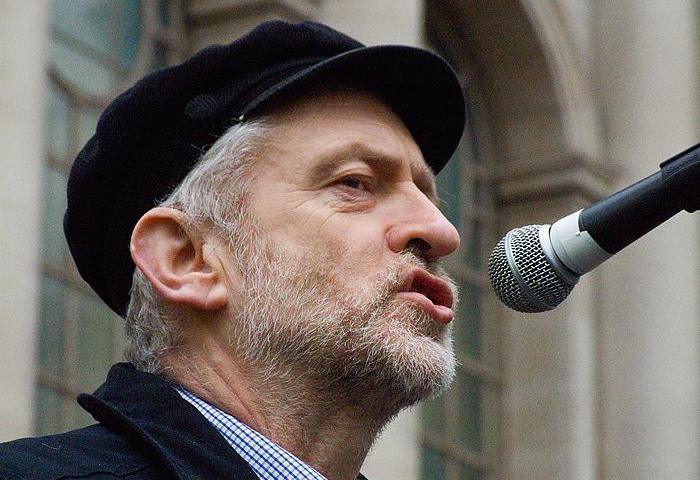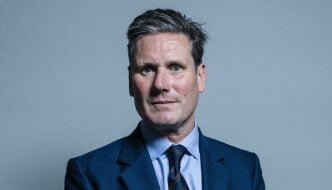 For all the faults of the British Right, it does possess, more so than the Left, an attachment to seriousness. It is less self-righteous, often has more regard for due process, and is less inclined to use literalism to its own political ends. Asked a few months ago to predict which of Britain’s two major parties would soon set out to sabotage the leadership election of the other, most of us would have predicted wrong. What’s more, any attempt by Labour members to sabotage a Tory leadership contest would rightly have been denounced by Toby Young and Louise Mensch as typically sophomoric.
For all the faults of the British Right, it does possess, more so than the Left, an attachment to seriousness. It is less self-righteous, often has more regard for due process, and is less inclined to use literalism to its own political ends. Asked a few months ago to predict which of Britain’s two major parties would soon set out to sabotage the leadership election of the other, most of us would have predicted wrong. What’s more, any attempt by Labour members to sabotage a Tory leadership contest would rightly have been denounced by Toby Young and Louise Mensch as typically sophomoric.
Had the Tories for Corbyn campaign been a simple attempt by the Right to satirise Labour’s registration policy, it would have been a good point well made. And who could have denied them the indulgence? Who couldn’t see that Labour’s attempt to woo voters by inviting them to care who should lead a party they had so recently rejected would flop at best?
But Tories for Corbyn was more than satire. It was still unclear whether Corbyn would win the vote among actual Labour supporters when the Telegraph urged its readers to sign up and vote, believing that by doing so they would secure a Tory majority for the foreseeable future. They didn’t care if Labour got a leader it hadn’t voted for because they didn’t think the electorate would vote for him either.
Still, the architects of Labour’s voting policy eventually got what they asked for. Polling cards are out, and with only a few weeks to go Corbyn’s campaign has boosted the number of registered voters to 600,000, 53% of whom are expected to give him their first preference vote. The only consolation for those of us who balk at the thought of a Corbyn-led Labour Party as much as we wither at the sound of Tory mirth is that the former could yet douse the latter.
Conventional wisdom states that in May Ed Miliband lost the latest bout of an ongoing ideological battle in which Corbyn’s losses are sure to be even greater. But the truth is that he lost because elections are never won by candidates who cannot convince the public they can manage the economy. Miliband was not simply incompetent when it fell to him to defend Labour’s economic record, he was absent.
Rather than risk a battle of substance, he let the Tories blame Labour for the economic crash in a way no other governing party in the world has been blamed, rewrite the history of their own spending plans, and banked on the whole thing dying out before 2015. As a direct result, the Tories were able to plant the now-widely held belief that good management equals austerity, and vice versa.
Cameron and Osborne wanted to face Miliband in public relations battles because he was awful at fighting them (and, worse, having lost them would claim never to have been fighting them in the first place). But how far will high-vis jackets and sloganised economics get them against a weathered sexagenarian whose style of communication was shaped on the back benches and public transport?
Liz Kendall thinks that to win back the public’s trust on the economy Labour must concede the Tories’ claims. In a sense she is right, because until now it has been they who have decided what is to be believed about the economy and what is not, what is true about the economy and what is not. Yet some of the world’s most respected economists—Amartya Sen, Joseph Stiglitz, Thomas Piketty—are lining up to give the lie to the myths of the pro-austerity Right. Jeremy Corbyn is, depressingly, the only candidate not afraid to repeat that case and gather the low hanging fruit ignored by Miliband in his hesitancy.
The Left of the 1980s might have underestimated the progressive potential of capitalism. Jeremy Corbyn certainly still does. But John Maynard Keynes, this country’s most prized economist, is remembered above all for arguing that high fiscal spending and the redistribution of wealth are the most effective ways to generate demand and economic growth. Economic thinking of this kind has not been discredited. In Greece and elsewhere its alternatives have.
Napoleon is supposed to have said that to understand a man you have to know what was happening in the world when he was twenty. Like them or not, the populist Left is made up increasingly of people who have come of age since New Labour embraced capitalism. They are angry about the financial crash, the banks that have failed to learn its lessons, and the inequality that has survived it. They do not understand why Tony Blair so fears a resurgence of the far Left, and it is for reasons Blair cannot understand that Corbyn really might win an election on the strength of, not despite, what he says about the economy.
I am as despondent at the prospect as any of my right-wing friends would be if they believed it likely to happen. Corbyn’s simplicity and sincerity might be able to mobilise people, but his desire to reopen coal mines, leave NATO, and go on calling Hezbollah his friends (why not ‘guests’, by the way?) are each regressive at best and dangerous at worst. Like so many of the faux-radicals in the Stop the War coalition, he can’t get one sentence into answering a question about Hamas without bringing up the crimes of Israel, and he can’t condemn anti-semitism on the far Left without changing the subject to racism on the far Right. But there are not enough people on the Left bothered by any of this for it to make any difference.
Corbyn’s tendency to flare and bristle when he is challenged and his self-satisfied insistence that any criticism of his politics constitutes a ‘personal attack’ might lessen his appeal after a while. But as Boris Johnson or Donald Trump will tell you, the electability of a politician who can converse without resorting to the vapid language of press releases, and who uses their brain to lie and evade your questions, cannot be overestimated.
It was assumed Corbyn’s candidacy would be the last heaving sigh of a dying generation until he got onto the ballot paper and was given the oxygen of publicity. I find myself certain the same thing will happen among the wider electorate, and there will be very few on the Right still laughing if it does.
t: @christycooney
Filed under: Politics
Tagged with: Boris Johnson, Donald Trump, Jeremy Corbyn, Labour party, Owen Smith, Tony Blair, ToriesForCorbyn



Comments